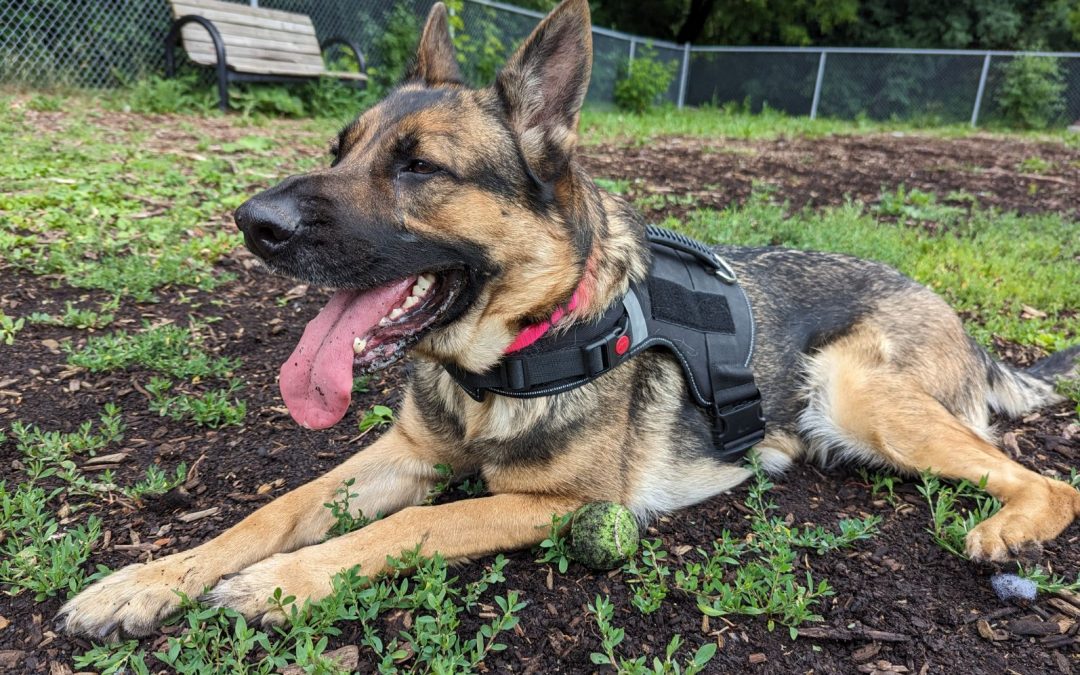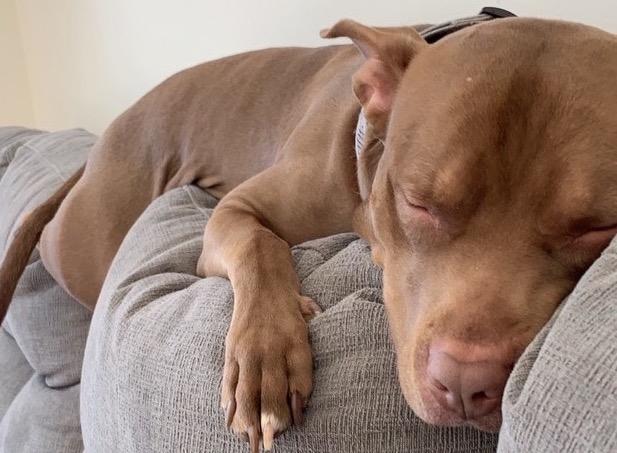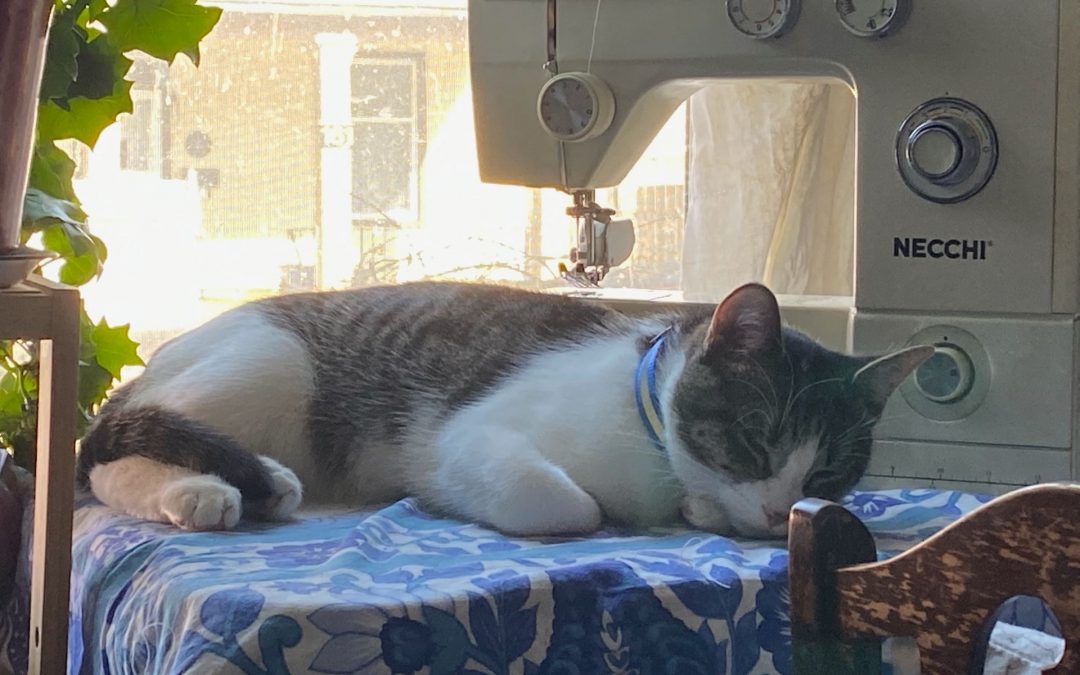
Looking for love (in all the right places) – Becoming a No Surrender foster family
Do you have the time and space to welcome a pet temporarily into your life? No Surrender is once again looking for short- and long-term fosters for cats and dogs and we’re hoping you, or someone you know, might be the person we’re looking for!
You provide the space, the patience, and the love, as well as regular photos and updates. We cover the bills and offer practical and emotional support. And at the end, you get to be there to see the pet(s) you’ve cared for reunited with their human(s).
What fostering with No Surrender is like:
Sometimes we have a lot of notice that an animal is going to come into foster. Sometimes we have almost none. We try to contain the chaos as much as possible, but this is emergency fostering, and there are sometimes emergencies. We do our best to predict how long a fostering commitment will be, and to share that with our fosters, but things can change. Sometimes it’s shorter than planned. Sometimes it’s longer. A general willingness to roll with the situation is an asset, but so is a willingness to say no when you need to.
When you apply, be specific about what kinds of pets you are and aren’t looking to foster. We will use this information as a guide, but we will always call you about specific pets and go over your needs and your capacity again and decide together whether you’re a match.
We take a detailed history of each pet we work with — their health, their personality, their routine, any training or behavioural challenges — and we’ll share that with you in full before you decide on a foster placement. We will never blame you for refusing a foster.
In the case of dogs, we also always send an experienced person to evaluate the dog, ideally with their owner. They take them for a walk, play with them, see where their training is at, check for food or toy guarding, and ask the owner more detailed questions where needed. We share all of this with our fosters as well, and the evaluator is available to talk things through and answer questions before you agree to take a dog.
We encourage prospective fosters to think and communicate about their comfort level dealing with clients. We’ve had fosters and client who went on to become great friends, and we’ve had fosters and clients who communicated only though us. We’ll always respect your boundaries.
However, if you do choose to interact with your foster’s owner, we take “no blame, no shame” very seriously. Our clients are calling us because they’re in trouble and trying to get back out of it. They’re trusting us with their beloved pets. They deserve our courtesy and respect. We are not the right organization for people who want to work with animals because they don’t like humans.
Equally, we ask you to understand that a pet coming into foster is a pet who is under stress. The first few days can be hard. They may be anxious and clingy, or they may vanish under the furniture. They may temporarily mislay their house training, or have to be coaxed to eat.
I always quote the rule of three to my fosters:
- 3 hours to unfreeze
- 3 days to decompress.
- 3 weeks to settle in.
- 3 months to truly show you who they are.
We are force- and fear-free, and require you to be so as well. We’re happy to discuss our training philosophy with prospective fosters, to make sure you understand what you’re agreeing to. We also offer support with training and management, from readings and other resources to phone help to sessions with a certified trainer.
Sometimes fosters don’t work out. Sometimes fosters have emergencies of their own. Life happens and we understand. If you need to end a foster relationship, we will find another place for the animal as quickly as possible. Unless it’s an emergency or there is a safety concern, this may take a few days.
If the client is unable to reclaim their pet for whatever reason, fosters are given first refusal on adopting that pet. There is never any obligation to do so, however, and if you choose not to we will work out next moves together: whether that’s leaving them in foster with you until they find a forever home, or moving them to a rescue.
If this all sounds reasonable and even appealing to you, we want to hear from you!
Email us at [email protected], and include your phone number and some times when we can reach you.
Volunteer intake typically takes 30-60 minutes, so that we can ask all the questions we need to and you can do the same.
No Surrender Ottawa is closing our foster intake
This isn’t easy to write and I don’t know how to start. So I guess this is how I start:
No Surrender Ottawa is closing our foster intake, and we don’t know when we’ll be able to reopen it.
We don’t have enough open foster spaces, for any species. We had a cat in my husband’s bedroom for four days last week, for want of any better options, and that worked out through, basically, a miracle.
We also don’t have enough people to keep on top of things for any more animals.
We need to focus on the roughly 20 animals we have in care now.
When we started No Surrender we knew there was a demand for an organization like this, and we wanted to meet it. We were right about the first part, and … I don’t think we’ve done a bad job with the second part, but we underestimated how much need was out there. Or we overestimated our own ability to say no. Or both.
We told ourselves we could grow to meet demand as word got out. And we sort of did, but mostly what that means is that we’ve just kept on being desperately overstretched and just barely hanging on waiting for something to break.
Something broke, and … it was us.
Rescues and other animal welfare organisations tend to fail in one of three ways:
They run out of money, and have to stop. We’ve been so fortunate in our donors, but … an awful lot of No Surrender Ottawa expenses have ended up going on our personal credit cards to be paid back out of donations later. And then later, there’s always something else going on and the money goes to that. You can only do that for so long.
They burn out their people, and have to stop. We’re either there or dangerously close to there. We love this work. We love every pet we’ve worked with and feel privileged to have been trusted by every client who’s called or emailed us.
There’s a thing I always tell clients who apologize for being stressed and emotional.
I say it to potential fosters, because I want them to understand what the “emergency” part of emergency fostering can involve, so they know what they’re getting into:
“Nobody ever calls me to tell me they’re having a good week.”
Pets come into foster with us and they’re stressed. They often have something medical going on that hasn’t been caught because their owner can’t afford regular checkups. Our fosters are amazing. They’re not all experienced fosters when they start with us, but they learn, they step up, they cope with all sorts of unpredictable stuff. They make room in their lives and hearts.
(PSA: If you have a social worker, for disability or any other reason, have them refer you to vetoutreach.org. They’re amazing, and they cover preventative care like neutering and physicals, but they only take referrals through workers.)
We have an amazing, brilliant team of volunteers and fosters, but we’re burning through ourselves at an unsustainable rate.
And then there’s the last way an animal welfare organisation can fail:
They run out of money or burn out their people, or both, and they don’t stop, and stuff stops getting done, and important things get missed, and the animals pay the price.
We’re not going to be that organisation. We can’t betray our clients and the animals they trust us with like that.
So this is where we are:
Nobody’s getting kicked out. All of the animals currently in foster will be cared for and loved until their owners can reclaim them. We made commitments and we’re going to keep them.
This means that we will still be raising money, for specific big vet bills (Shep’s leg, Baster’s teeth, and one of our foster cats had a urinary obstruction this week; he’s doing well now but ouch!) and for general running costs (food, litter, treats, toys, preventative vetting, transportation, Haltis and zip lines and other quality-of-life stuff for pets in our care).
We will continue to be transparent about where the money goes.
We will still be doing our non-foster work: dogwalking, training advice and referrals, referrals to other organisations like Vet Outreach and Pet Resource Bank, reunification help for clients whose pets have ended up at OHS and who can’t afford the impound fees or can’t get transport there, and we’ll keep responding to calls from hospitals and social workers for pets who’ve been left alone due to sudden illness or injury or other emergencies.
And, we’ll be regrouping and trying to work out what we need in order to do this work, and whether or not we can get what we need, whether that’s a steady flow of income from a grant, more partnerships with other organizations, recruiting more people who can help us with organization

Help Us Help Louie!
This is Louie. He is a 3 year old Labrador mix who loves cheese, squeaky toys, chasing his ball, and snuggling with his person, Allie.
Allie’s last relationship ended abruptly and Allie and her cat are staying with family right now. Sadly, that’s not a good solution for Louie, because the household has other dogs, and Louie needs to be an “only”.
Louie’s still at her previous place outside the city and she’s been driving out to feed, walk, and care for him every day.
This is not sustainable, for two reason: first, she’s been asked to take him away as soon as possible. Secondly, Allie works at CHEO (the Children’s Hospital of Eastern Ontario). Right now she, like every health care worker in Ontario, is run off her feet and desperately tired. Adding a long daily round-trip is a lot.
She has a new place, but her lease doesn’t start until June 1. So she reached out to us, and we are so glad she did.
After a lot of discussion with Allie and between ourselves, we’ve made the decision to place him in foster with Dogs & Compagnie for the month. Although this is considerably more expensive than fostering him in a home, we truly believe it’s the best choice for him right now.
Louie is very nervous and submissive around strangers, especially men, and even more so around strange dogs. Allie’s been working to help him feel more confident, but while he’s separated from her, for the first time in his life, he needs an environment that won’t overwhelm him.
In order to do a home placement, we’d need a highly experienced foster parent, in a quiet area, preferably with a yard, who didn’t own, and wasn’t currently fostering, other dogs.
If you are that rare and wonderful person and would like to spend some time with this snuggly, perfectly toasted marshmallow, please–get in touch!

Until then, we believe that Dogs & Compagnie is the best place for him to be. They can give him the space and quiet that he needs while also giving him individual attention and help with confidence-building.

Meet Niqe
We’d like to introduce you to one of the amazing animals we’ve been able to help thanks to your support.
Niqe is a 1 year old, male, grey and white, tabby shorthaired cat. His owner’s name is Michael, and we are helping him foster Niqe until May 1st when he is able to move into a cat-friendly home!
Niqe is one of the kittens from the Eccles St colony, who Michael adopted in November. When Michael needed to leave the rooming house he was living in suddenly, we took Niqe into foster to give Michael time to consider next steps and find a new, cat-friendly place to live.
Niqe is a loving and fearless charmer, always up for a chance to chase his string or for a game of fetch. Once he’s had a chance to burn some energy he also enjoys a snuggle.
Thanks to our supporters we are able to help Michael keep his lovely kitty, and help Niqe keep his lovely human!If you’d like to support the work that we do you can make a donation here: https://www.paypal.com/donate/…
We are also looking for foster homes for cats, dogs and other animals in the greater Ottawa area, and potentially as far as Montreal! Send us a message at [email protected]
No Surrender, What We Do.
This story in the Centretown Buzz sums us up pretty well.
We’re here to fill the gap between social services for humans and rescue and welfare services for pets, because too often that gap has meant separating pets from good and loving homes and separating people from the pets whose love and trust makes a huge difference to their mental and sometimes physical health.
In some ways, we’re still working out what that looks like; there are very few organizations doing this sort of work in Canada.
We’ve learned that temporary fostering is a big piece of the puzzle, and that helping people access basic vet services is another.
We are passionate about microchips, and we help people for whom money is a barrier to reclaiming their animal from OHS.
We know that often, it’s the little things: someone to take a dog for a longer walk than the owner can manage can be the difference between a dog and owner happily staying together and a situation that leads to a badly overweight or “too hyper” dog looking for a second chance that may not come.
We try not to do what’s already being done. We don’t operate a food pantry, because there are already pet pantries doing amazing work in Ottawa, but we do help people locate the nearest option and organize deliveries for those who need them. We don’t do rehoming, but we work with rescues who do.
We’re learning as we grow and growing as we learn. If this sounds like something you want to be a part of, get in touch. If you have ideas about what more we could be doing, or how we could do better, definitely get in touch. We want to hear from you.
